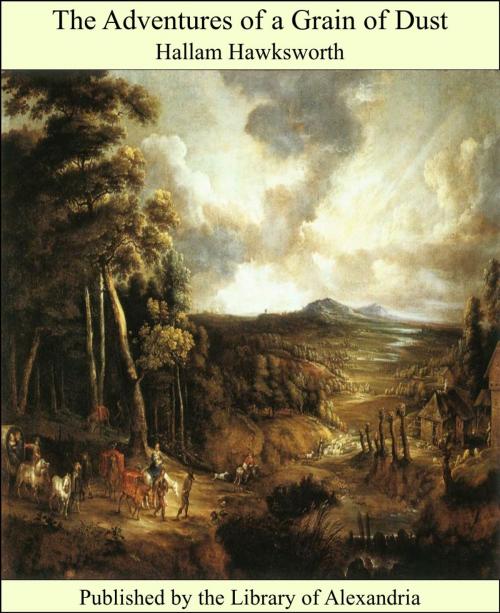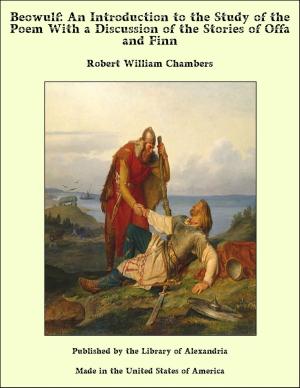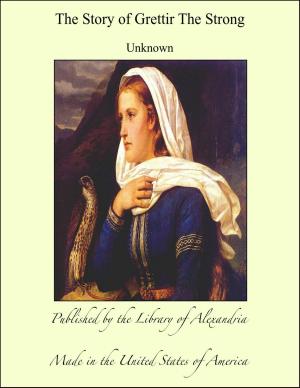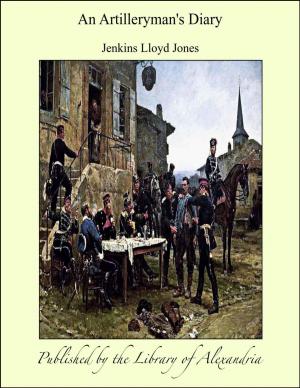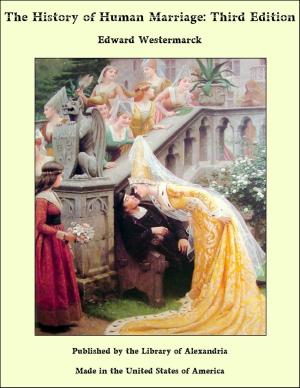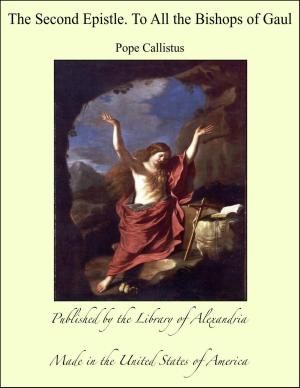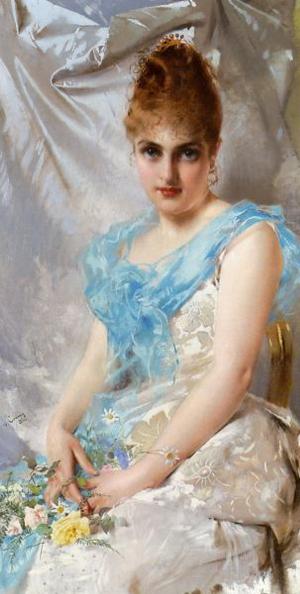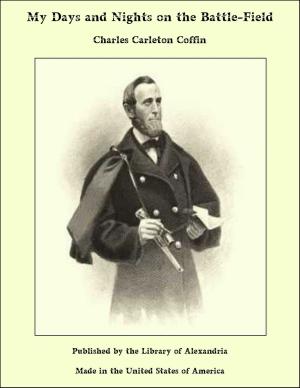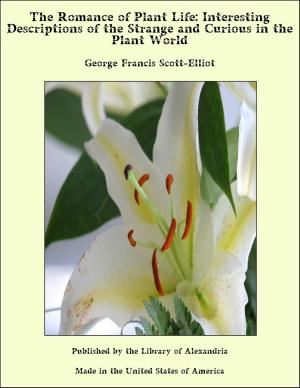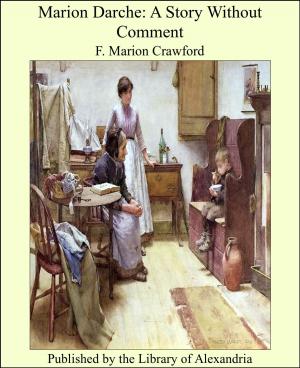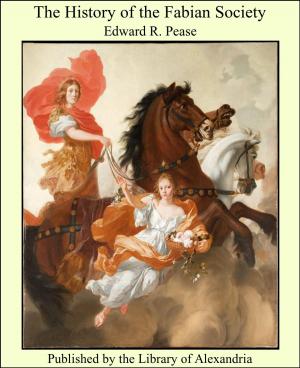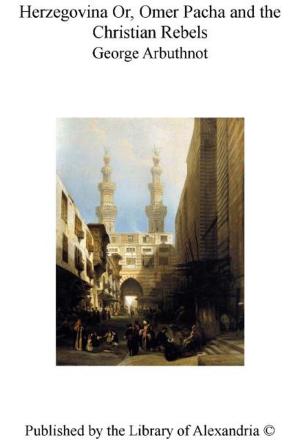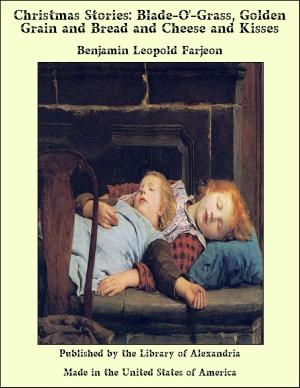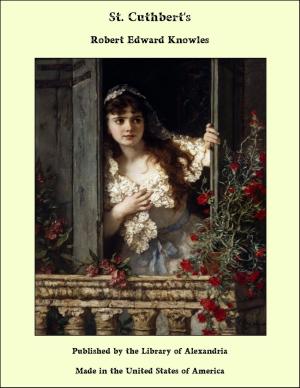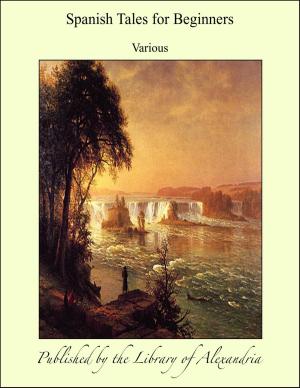The Adventures of a Grain of Dust
Nonfiction, Religion & Spirituality, New Age, History, Fiction & Literature| Author: | Hallam Hawksworth | ISBN: | 9781465511393 |
| Publisher: | Library of Alexandria | Publication: | March 8, 2015 |
| Imprint: | Language: | English |
| Author: | Hallam Hawksworth |
| ISBN: | 9781465511393 |
| Publisher: | Library of Alexandria |
| Publication: | March 8, 2015 |
| Imprint: | |
| Language: | English |
The Acts of Uniformity are incidents in a great movement. They are far from being the most important of its incidents. Their importance has perhaps been exaggerated, and their purport is commonly misunderstood. My object is to place them in their true relation to Other incidents. It is useless to study them apart; they cannot be understood except as details of a connected history. I shall confine myself, however, to a narrow, question: assuming the general history, I shall ask how the several Acts of Uniformity come into it, with what purpose and with what ultimate effect. To study immediate effects would be to engage in too wide an inquiry. We owe thanks to the men who drafted the statutes of the sixteenth century for their long argumentative preambles. These are invaluable as showing the occasion and purpose of the Acts. We shall not go to them for an uncoloured record of facts--their unsupported assertions will hardly, indeed, be taken as evidence for facts at all; but they tell us to what facts the legislator wished to call attention, and in what light he would have them regarded. The preamble of the first Act of Uniformity is among the most illuminating, and with its help we can assemble the facts in relation to which the purport of the Act must be determined. We are in the year 1548. Important changes in matters of religion had taken place; greater changes were in prospect. The processions before High Mass on Sundays and Festivals, conspicuous and popular ceremonies, had been stopped on rather flimsy grounds, and a Litany in English substituted--the "English Procession," as it was called. Many images in the churches had been destroyed, as superstitious; the censing of those remaining had ceased. The peculiar ceremonies of Candlemas, Ash Wednesday, and Palm Sunday had been omitted in many places. A chapter of the Bible in English was being read after the lessons at Mattins, and at Evensong after Magnificat. It was not very clear by what authority these innovations had been made. There had been royal proclamations and injunctions; episcopal injunctions and orders on visitation. There was another change, perhaps the most striking of all, in which Parliament had intervened. The first Act of the first Parliament of Edward VI. required the administration of the Holy Sacrament of the Altar in both kinds. No penalties were annexed, though elsewhere in the same statute severe penalties were appointed for depravers of the Sacrament. Convocation had concurred, adopting on December 2, 1547, a resolution of some sort in favour of communion in both kinds. [1] The records are too scanty to show exactly what was done. An Order of the Communion with English prayers, to be inserted in the usual order of the Mass, was afterwards published, and brought into general use, on the command apparently of the King and his Council. Nothing was said in the Act of Parliament about the mode of giving communion, and therefore, lest every man phantasing and devising a sundry way by himself, in the use of this most blessed Sacrament of unity, there might thereby arise any unseemly and ungodly diversity, the King put forth this Order to be exclusively followed. [2] A letter from the Council to the bishops of the realm explains the source of the Order. It was drawn up at the King's desire, by sundry of his majesty's most grave and well learned prelates, and Other learned men in the scripture. [3] This, then, was commanded by public authority. But there were Other innovations of more doubtful origin. On May 12, 1548, at the commemoration of Henry VII. in Westminster Abbey, Wriothesley tells us of the masse song all in English, with the consecration of the sacrament also spoken in English, the priest afterwards "ministering the communion after the Kinges booke." In September, at the consecration of Fernir by Cranmer, Holbeach and Ridley, something of the same kind was done. The account in Cranmer's Register is confused, but it says distinctly that the Holy Eucharist was consecrata in lingua vernacula. The churchwardens of St. Michael's, Cornhill, this same year paid five shillings to the Scolle Mr of Polles, for wrytyng of the masse in Englysh & ye benedicites; doubtless for use in church. [4] In May, again, according to Wriothesley, Poules quire and dyvers Other parishes in London song all the service in English, both mattens, masse, and evensonge
The Acts of Uniformity are incidents in a great movement. They are far from being the most important of its incidents. Their importance has perhaps been exaggerated, and their purport is commonly misunderstood. My object is to place them in their true relation to Other incidents. It is useless to study them apart; they cannot be understood except as details of a connected history. I shall confine myself, however, to a narrow, question: assuming the general history, I shall ask how the several Acts of Uniformity come into it, with what purpose and with what ultimate effect. To study immediate effects would be to engage in too wide an inquiry. We owe thanks to the men who drafted the statutes of the sixteenth century for their long argumentative preambles. These are invaluable as showing the occasion and purpose of the Acts. We shall not go to them for an uncoloured record of facts--their unsupported assertions will hardly, indeed, be taken as evidence for facts at all; but they tell us to what facts the legislator wished to call attention, and in what light he would have them regarded. The preamble of the first Act of Uniformity is among the most illuminating, and with its help we can assemble the facts in relation to which the purport of the Act must be determined. We are in the year 1548. Important changes in matters of religion had taken place; greater changes were in prospect. The processions before High Mass on Sundays and Festivals, conspicuous and popular ceremonies, had been stopped on rather flimsy grounds, and a Litany in English substituted--the "English Procession," as it was called. Many images in the churches had been destroyed, as superstitious; the censing of those remaining had ceased. The peculiar ceremonies of Candlemas, Ash Wednesday, and Palm Sunday had been omitted in many places. A chapter of the Bible in English was being read after the lessons at Mattins, and at Evensong after Magnificat. It was not very clear by what authority these innovations had been made. There had been royal proclamations and injunctions; episcopal injunctions and orders on visitation. There was another change, perhaps the most striking of all, in which Parliament had intervened. The first Act of the first Parliament of Edward VI. required the administration of the Holy Sacrament of the Altar in both kinds. No penalties were annexed, though elsewhere in the same statute severe penalties were appointed for depravers of the Sacrament. Convocation had concurred, adopting on December 2, 1547, a resolution of some sort in favour of communion in both kinds. [1] The records are too scanty to show exactly what was done. An Order of the Communion with English prayers, to be inserted in the usual order of the Mass, was afterwards published, and brought into general use, on the command apparently of the King and his Council. Nothing was said in the Act of Parliament about the mode of giving communion, and therefore, lest every man phantasing and devising a sundry way by himself, in the use of this most blessed Sacrament of unity, there might thereby arise any unseemly and ungodly diversity, the King put forth this Order to be exclusively followed. [2] A letter from the Council to the bishops of the realm explains the source of the Order. It was drawn up at the King's desire, by sundry of his majesty's most grave and well learned prelates, and Other learned men in the scripture. [3] This, then, was commanded by public authority. But there were Other innovations of more doubtful origin. On May 12, 1548, at the commemoration of Henry VII. in Westminster Abbey, Wriothesley tells us of the masse song all in English, with the consecration of the sacrament also spoken in English, the priest afterwards "ministering the communion after the Kinges booke." In September, at the consecration of Fernir by Cranmer, Holbeach and Ridley, something of the same kind was done. The account in Cranmer's Register is confused, but it says distinctly that the Holy Eucharist was consecrata in lingua vernacula. The churchwardens of St. Michael's, Cornhill, this same year paid five shillings to the Scolle Mr of Polles, for wrytyng of the masse in Englysh & ye benedicites; doubtless for use in church. [4] In May, again, according to Wriothesley, Poules quire and dyvers Other parishes in London song all the service in English, both mattens, masse, and evensonge
